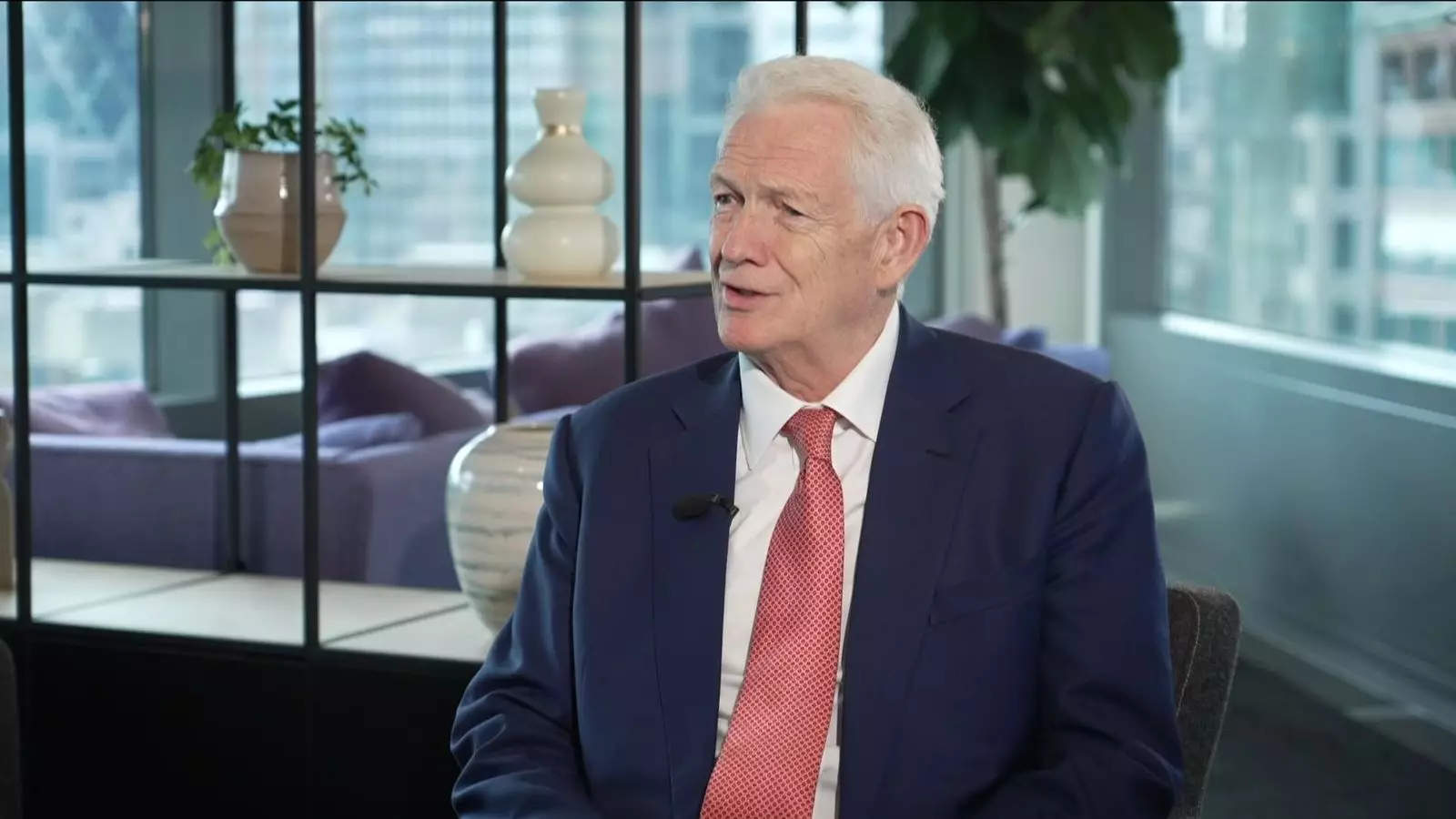In a rather chilling twist of fate, Rick Haythornthwaite, the current Chairman of NatWest, expressed his gratitude to British taxpayers for their role in rescuing the bank during the turbulent financial crisis of 2008. His remarks coincide with the transition of NatWest back into private ownership after a staggering 17 years of government intervention. While on the surface, his sentiments appear heartfelt, one cannot help but notice the irony creeping through—gratitude mingled with a seemingly reckless desire to push for the relaxation of regulatory frameworks that were painstakingly constructed to prevent history from repeating itself.
Thanking taxpayers obscures a dirty truth: the very architecture of banking practices that necessitated such a monumental bailout has not been dismantled. Instead, it is being dressed up as a nuanced conversation about regulatory pendulums swinging “too far.” Haythornthwaite’s comments illustrate a worrying trend where the lessons learned from the 2008 debacle seem to be fading into the background, replaced by the allure of profit maximization and corporate greed.
The Great Cost of Complacency
The figures are damning; taxpayers lost approximately £10.5 billion through the process of unwinding the government’s stake in NatWest, contrasted by Haythornthwaite’s assertion of structural safety and a brighter bank future. This narrative conveniently negates the human cost tied to financial institutions prioritizing their bottom lines over the welfare of average citizens. How unsettling to witness the resurgence of corporate voices advocating for more freedom to pursue profit while simultaneously thanking the very people they once left to bear the brunt of reckless decisions.
Watching this unfold is like listening to a broken record. The governmental regulations born from the ashes of the financial crisis were intended to safeguard those who trust banks with their wealth and security. New rules, such as the ring-fencing of retail banking and caps on bonuses, were instituted to ensure that the specter of greed would not rear its ugly head again. Yet, here we stand, confronted with the lamentations of bankers eager to restore unrestricted appetite for risk, albeit with soothing words about ethics and customer-centric culture.
A Regulator’s Dilemma
Haythornthwaite’s assertion that “the pendulum may have swung too far” strikes a chord of concern. Regulations speak to systemic safety, a barrier to prevent the banking industry from jeopardizing not just wealth but the very fabric of social trust. The nonchalance with which he refers to the need for “eliminating duplication” within the regulatory framework underscores a dangerous mindset that prioritizes efficiency over accountability. Isn’t it ironic that the very regulatory reforms created in the wake of economic disaster are now being evaluated on the basis of cost and growth potential?
To see the Chancellor of the Exchequer, Rachel Reeves, show receptivity towards relaxing these regulations is disheartening. This fascination with appeasing City financial institutions while disregarding the lessons learned, risks opening Pandora’s box all over again. While some may argue that a balance needs to be struck for growth, this viewpoint ignores the dark shadows cast by past transgressions. It trivializes the imperative of protecting minimal consumer interests, letting corporate giants dictate terms under the guise of economic prosperity.
A Dubious Path Forward
The reality check lies in the dichotomy that continues to persist: for every call to ease regulations, there seems to be a simultaneous assurance that “we won’t forget the lessons of the past.” It is frustrating to see this delicate balancing act exhibited without a tangible commitment to change. When Haythornthwaite claims, “This is not about triggering a race to the bottom,” one can’t help but snicker at his apparent naivety, or perhaps the calculated ambiguity behind his rhetoric.
The road ahead appears treacherous. Recent calls to lift the cap on bonuses and dismantle ring-fencing seem dangerously aligned with a short-sighted view of economic recovery that prioritizes immediate financial gain over long-term stability and ethical banking practices. As echoes of past financial failures should serve as staunch reminders, it instead raises alarm bells about a relapsing appetite for risk and a culture that is far from accountable.
Thus, as NatWest makes its triumphant exit from governmental oversight, one must wonder: will the gratitude expressed genuinely translate into meaningful change or merely serve as a thin veneer over a still perilous banking system? The stakes could not be higher, and as citizens, we must remain vigilant.

Leave a Reply